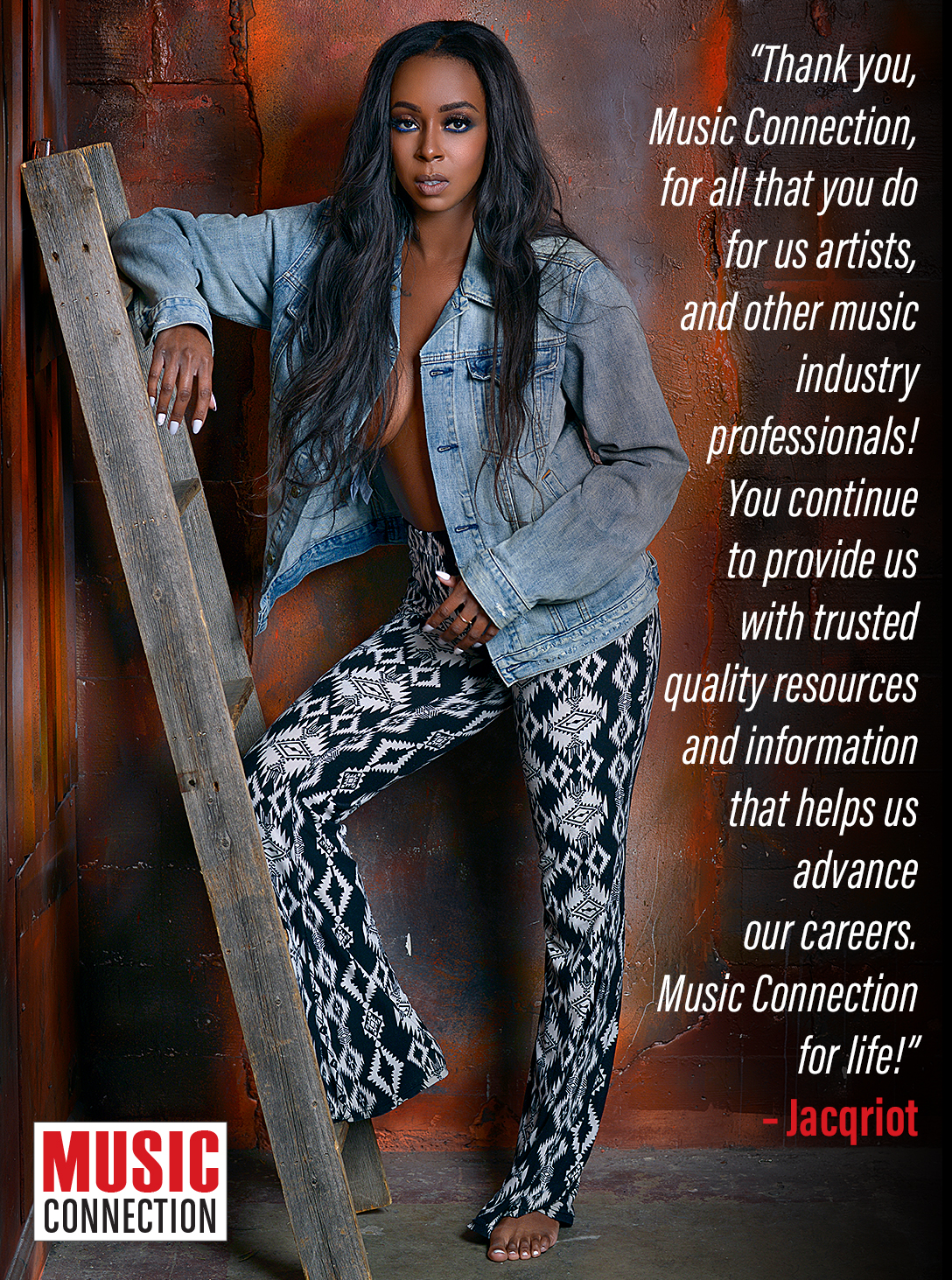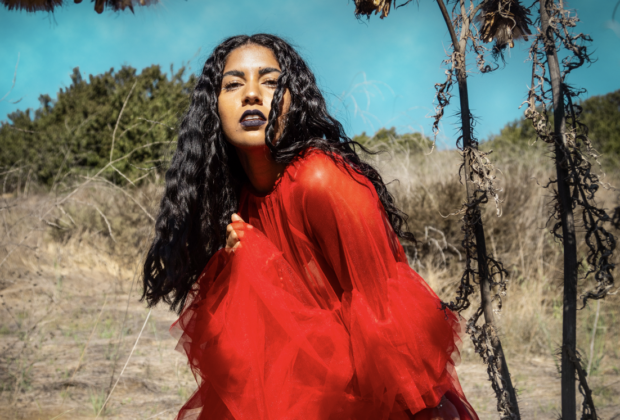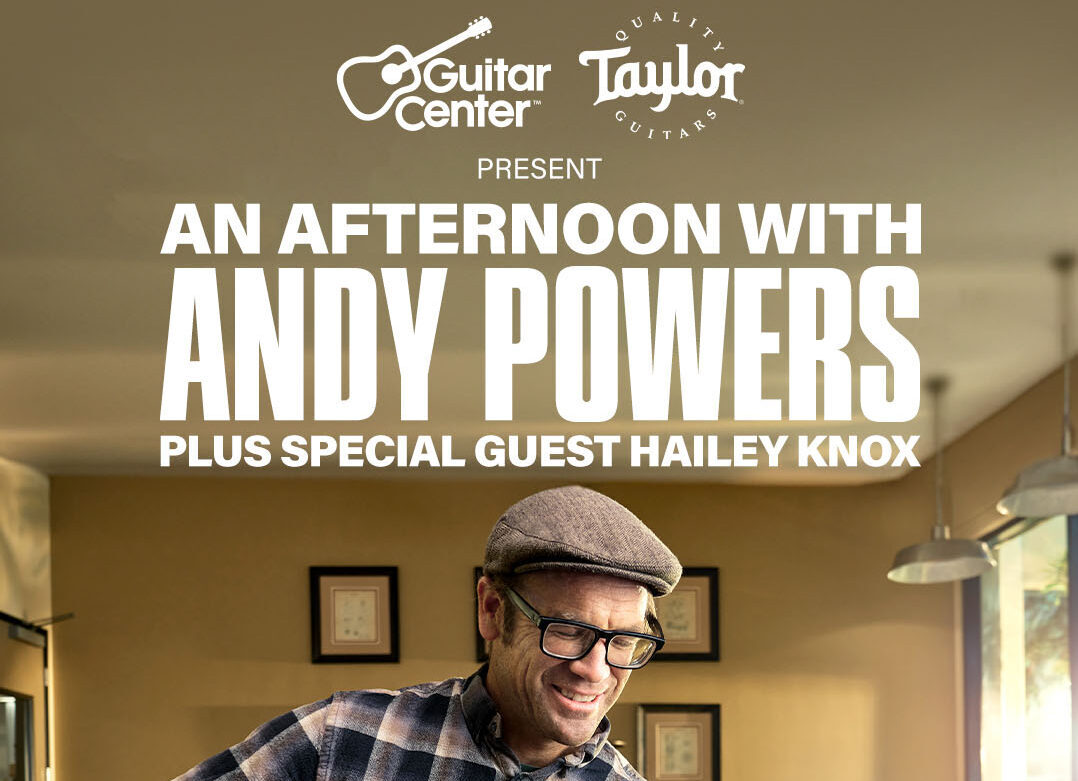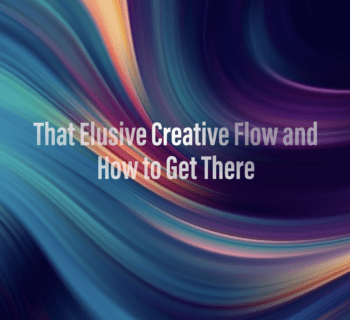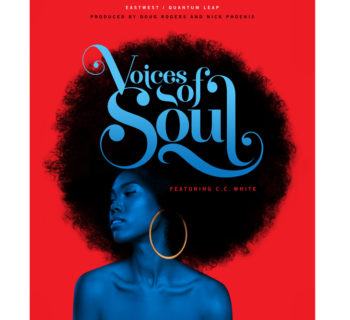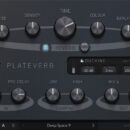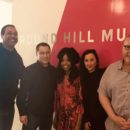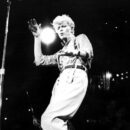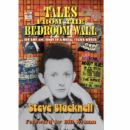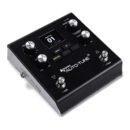It’s here once again, our annual feature where we spotlight some of the brightest and best vocalists from different genres. From legends to rising stars, you’ll find singers from all walks of life right here in this exclusive forum. And this year is action-packed, with plenty of informative tips, insight and conversation from experimental and alternative pop singer-songwriter TRISHES, modern country star Chris Young, up-and-coming rocker Dorothy, Creed frontman and solo artist Scott Stapp, and the legendary Tommy James.
TRISHES
Contact: Fiona Bloom
fiona@thebloomeffect.com
Southern California-based multimedia and alternative pop songstress Trishes (born Trish Hosein) is a mighty three-in-one artistic combo. Based on Freudian theories of the human psyche comprised of three constructs—Id, Ego and Superego—Hosein pluralizes her moniker to represent those three sides of her persona.
Through spoken word monologues, looping and other electronically driven songs and live performances, she presents bold and powerful statements on existentialism, racial issues and social awareness. She has two independently released albums, The Id and Ego. Her third release in the trilogy called Superego is currently in production.
Vocal Background: “Since I was 11 or 12 I was in four choirs at the same time. I also started voice lessons at 12. I went to an arts high school, Canyon Crest Academy, and later attended Berklee College of Music.”
Musical and Cultural Influences: “I think my influences were more the avant garde indie artists of the ‘90s and early 2000s. I was a big Bjork and Fiona Apple fan. Later on, I got into St. Vincent. I always enjoyed women that were a little left of center. Cultural influences, in terms of the conceptual part of my project It’s always been about conflicting inner conflict. I feel like my purpose in life is, not just music, but writing and art are centered on the idea of dismantling harmful internal beliefs in order to aid external conflict.”
Personal Background: “I was born in Trinidad and moved to the United States when I was six. I think it brought up a lot of mental dissonance for me. I found I was kind of releasing societal norms, releasing racial constructs and trying to find my identity in a new place.”
Vocal Warm Ups and Routine: “I just do a lot of choir kid stuff. I try to get into my body. I used to teach voice, piano and music to elementary school kids. So I try to do stuff that warms up my voice and my body. I do touching my toes and doing sirens with my voice that go from low to high. I’ll meditate before a performance to get my breath into a space that feels good.”
Vocal Health: “I take my sleep very, very seriously. I should hydrate more. I am a tea drinker, but that’s about it.”
Songwriting Process: “All my songs really start concept-based. With The Id, I thought about what are the different concepts that, put together, would really represent the construct of the primal self. My song ‘Big Sunglasses’ is about anonymity and how that brings out the primal self. Now with a project like Superego I’m thinking about what connects us all in terms of spirituality, ethics or morality.
The first song that we recorded for this new project Superego is called ‘Nefertiti.’ It’s about how our relationship with death reflects our relationship with life. That started from me being in Egypt. And I was thinking that one day I will be laid to rest like Queen Nefertiti. And so will that construction worker or that billionaire. It’s the great equalizer.”
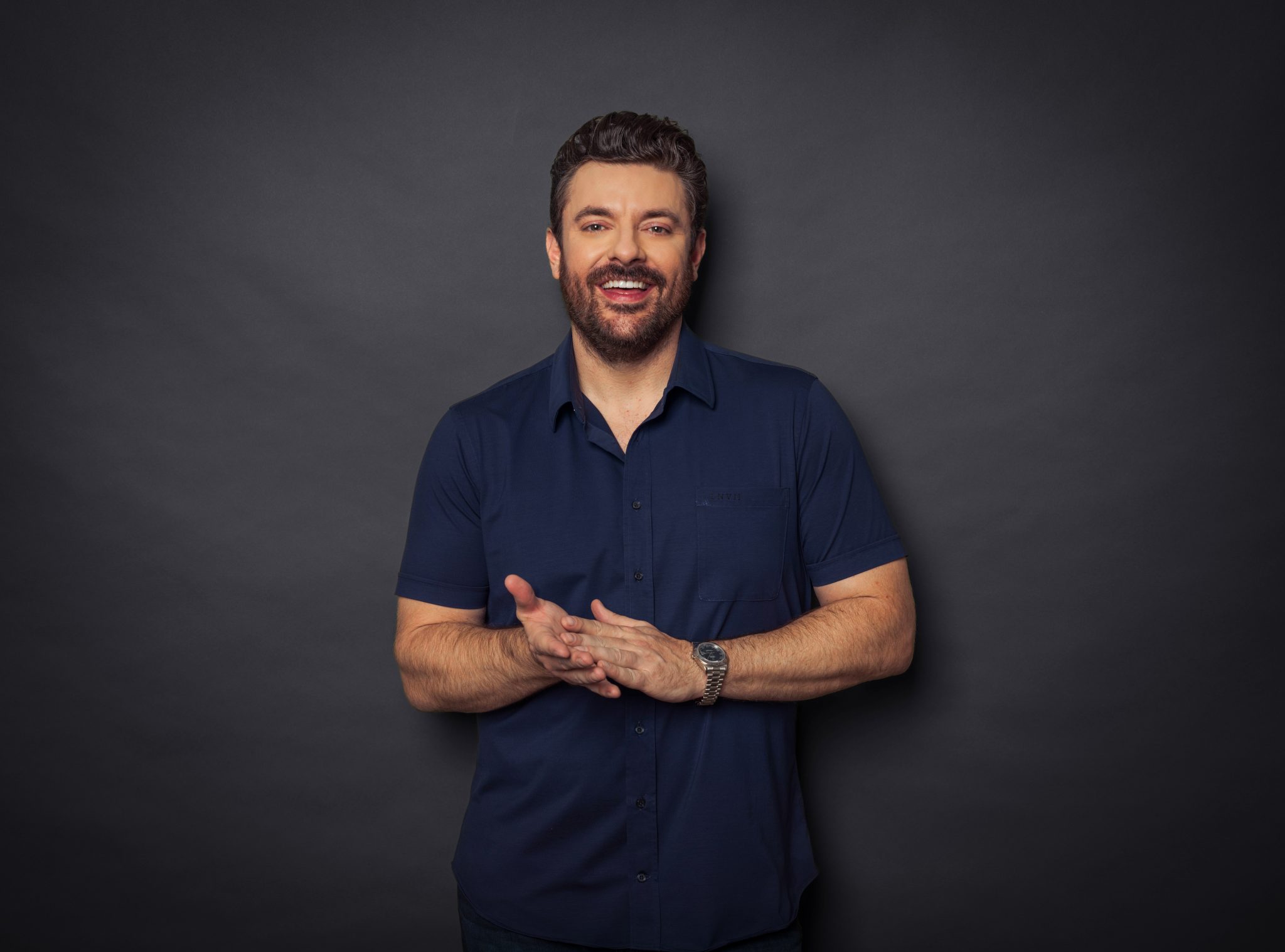
CHRIS YOUNG
Contact: Cindy Hunt
cindy.hunt@monarchpublicity.com
Chris Young is a modern country singer-songwriter that rose to fame in 2006 after winning season four of the reality singing competition Nashville Star. After winning the competition, he was signed to RCA Records Nashville, releasing his self-titled debut album that same year. Having amassed more than five billion streams and 13 No. 1 singles, he is currently on tour promoting his ninth album entitled Young Love and Saturday Night.
Musical Education: “I took vocal lessons for years. I had a scholarship for jazz to Berklee College of Music. I can also sing in multiple languages. A lot of people don’t know that. But the most important thing for me is I wanted to be a country singer and do that for a long, long time.”
Musical Influences: “The short version is Lefty Frizell, Brooks & Dunn, Keith Whitley, Tracey Lawrence and Garth Brooks. There’s been quite a few.”
Working in the Studio: “I am not a person that does a lot of takes in the studio. If you can’t do it in three or four you probably shouldn’t be cutting that song because you’re not gonna be able to sing it live. And that’s not always the case. Sometimes you want a different version of a song, or it’s a song that’s really hard to sing. But, for me, no more than three or four takes, with some fixes.”
Vocal Warm Ups and Care: “Honestly I would just say it’s the annoying stuff, right? You gotta stay hydrated and you gotta warm up. But I’m really bad about warming up as a singer. I very rarely do. I normally just wake up and start singing. It’s not for everybody but it works for me.”
Songwriting Process: “I’m more of a collaborative person. If you look at my songwriting credits there’s not a bunch of stuff out there with me just by myself. Working with other people can be just like this—one day your back hurts from carrying me in the studio, and then my back hurts carrying you the next day. And just being collaborative, there’s no rhyme or reason, and no right way or wrong way to do it. So figuring out who you connect with as a songwriter and how you make music is sort of where you have to be a bit malleable, I guess.”
Young Love and Saturday Night: “I had a lot of time to make this record. I’m really proud of it and it says a lot of stuff I haven’t said before. There’s definitely love songs and break up songs, and sexy songs and party songs. But I also wrote stuff about my dad, and my dog too. It’s very personal.”
Best Advice You’ve Ever Gotten: “Another artist one time told me somewhere in that crowd there’s a mom and a dad and they paid for a babysitter to sit at home with their kid. And they barely had the money to do it. They saved up just enough money to buy a ticket to your show. And they’re so excited to be here. This is their date night. It’s their only night out this month. So don’t mess it up! It’s layered because it was definitely some advice I needed, and one I think a lot of people could use.”
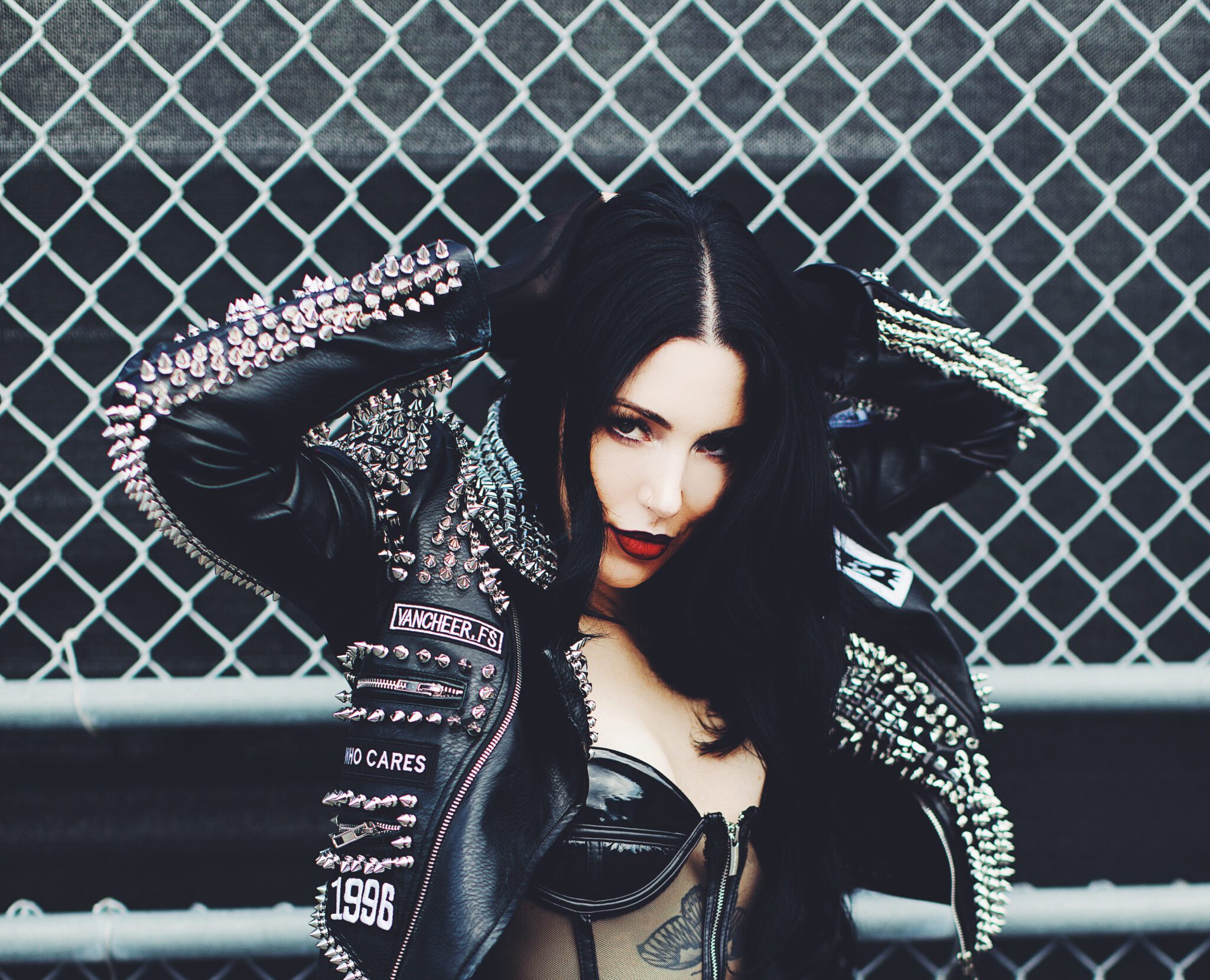
DOROTHY
Contact: Anna Greenhall
annag@10thst.com
Powerhouse vocalist Dorothy Martin is a Southern California native that fronts the band simply bearing her namesake, Dorothy. Hers is a sound that draws from heavy rock contemporaries like Halestorm and Rival Sons. She’s released two EPs and has three studio albums under her belt.
Released in 2022, her current album Gifts From the Holy Ghost (RocNation) has garnered steady rotation on various rock radio platforms. And successful touring stints with bands like Dirty Honey, Greta Van Fleet and Mac Saturn have been steadily raising the public’s awareness and visibility of this fiery vocal dynamo on the national front.
Musical Education: “I’m a ‘90s kid and a music fan, first. I would grab any CD I could get my hands on. I grew up on my dad’s vinyl records—Pink Floyd, Creedence Clearwater Revival, Janis Joplin, Motown. And then there was Brittany Spears, Creed and Dixie Chicks too. I taught myself to sing by emulating singers -- I was always kind of a ham sandwich (laughs). I performed in school plays and musical theater, but was always a rocker at heart! As I got older I got more serious and sought out teachers for opera training. I studied at Bel Canto in La Jolla down in San Diego for a few years.”
Vocal Evolution: “My voice used to be very poppy and sweet, and now it sounds like I’m a chain smoker (laughs). I remember when my voice changed after I had gone through a serious trauma. Your body responds to things like that. But I like the way my voice sounds now. It’s got character and grit.”
Vocal Care: “I take care of my body for one. I’m in recovery, so no drugs or alcohol. I eat well, exercise and try to stay in shape. I have a really great teacher that I check in with from time to time just to make sure I haven’t fallen into any bad vocal habits. It becomes a mind game too. If you get in your head too much as a singer it can shut down your voice. So, feeling it with your heart and soul and expressing it that way can unlock a lot for a vocalist.”
Performing With Dolly Parton: “She was an absolute treasure and an angel. She was so sweet, humble, kind and down-to-earth, but still a total rock star! She’s paved the way for so many women in country music and just music in general. And I grew up listening to her. That was an out-of-body experience, to say the least.”
Funny Tour Moment: “One time I put a wig in the washing machine on tour. I was wearing wigs because sometimes you don’t have time to do your hair and they come in handy. And I had to throw it in my laundry bag and washed it. Later when I opened the washing machine and looked inside I screamed because I thought a dead animal got in there.
And then I realized it was my wig (laughs). Someone said I should give it away to a fan. We took it to an acoustic unplugged set and I think we named it ‘Frank’ or something (laughs). And some lucky fan went home with my washed up dead animal wig.”
The Power of Music: “I believe when you speak out the atmosphere has power. And I realized I have a responsibility to inspire people and bring them lightness, not darkness. Darkness has its time and place. But if I’m gonna have a microphone and do music I wanna be life-affirming, inspiring and lift them up. Life is hard enough. So, planting seeds of hope—even if it’s one line or lyric in a song—feels like a ‘God shot’ to me. It can change your whole outlook.”
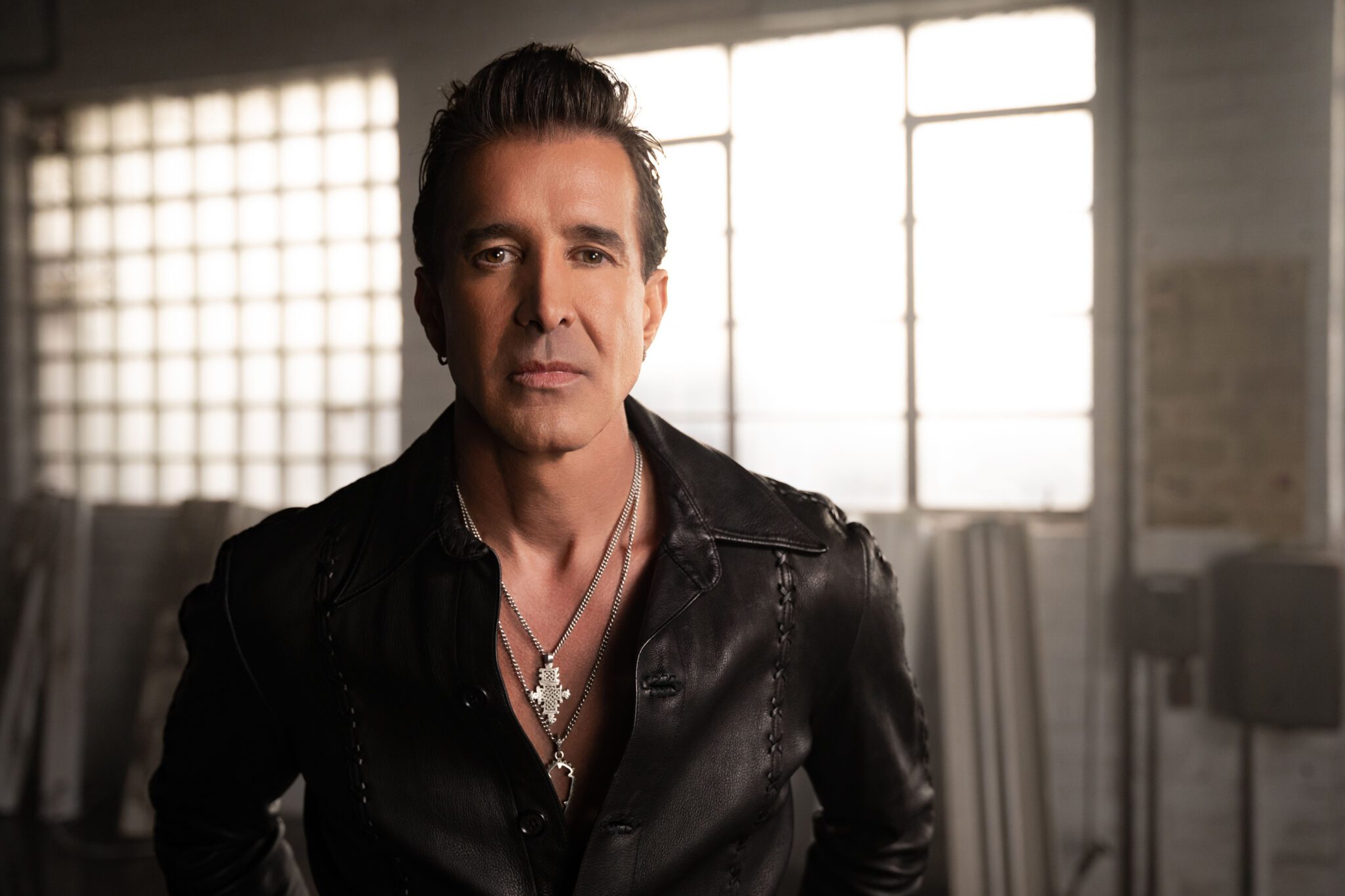
SCOTT STAPP
Contact: Tiffany Shipp
tiffshipp@gmail.com
Natalie Camillo
natalie.camillo@napalmrecords.com
Scott Stapp is a Grammy Award-winning and multi-platinum selling artist front man with the anthemic rock band Creed. He is also a successful solo singer-songwriter, with four solo albums under his belt. The prodigious and spiritually engaging musician is bigger and busier than ever.
With Creed reunion cruises underway and touring in support of his latest solo release entitled Higher Power (Napalm Records), Stapp is bringing his uplifting messages of hope and existential power to vast audiences across the country.
Musical Influences: “Initially I was introduced to music through my mother and grandparents. I heard Elvis and gospel music prior to age nine. I watched Hee Haw on TV and also liked Neil Diamond. But when I saw Def Leppard’s video for ‘Photograph’ on MTV I said that that was exactly what I wanna do when I grow up. Also U2’s Joshua Tree album spoke to me in terms of its anthemic grandness and spiritual themes in the lyrics. I really connected with the poet aspect of Jim Morrison and the Doors too. That’s where I formulated a lot of how I create and write.”
Vocal Health: “I drink tons of water. I do warmups prior to every show. When I’m on tour silence is the answer. Sleep is important too. Your voice needs time to rest and heal. And the older you get the more the healing process takes. Also, I will drink raw honey. I’ll make honey water, with no lemon. It’s a textured drink of hot honey water.
I’ll sip on that all day. It’s kind of a miracle cure for me. I’ve done shows where my voice has gone out because it’s tired or there’s some irritant in the air. Drinking honey will start to clear it up. Another thing that’s helped me are those Ricola cough drops, with the honey liquid center. Whatever is in those has healing properties.”
Working With Different Vocal Styles: “I definitely wanted to try different keys and things my voice could do on Higher Power. I wanted to step outside the vocal style that I’m known for with Creed. Some of it is growth and evolution, but also because I’ve learned how to properly sing. On the first three Creed records I was a throat singer. I had had no formal training. I wasn’t singing from the diaphragm and I wasn’t singing from the gut. But after those first three Creed records and my first solo record I studied with Seth Riggs. He’s worked with Michael Jackson and everybody. He helped me to sing better.”
Keeping Songs Fresh: “For whatever reason, I find I still connect with the songs, but just in a new way. There’s always something in my life that seems to connect me emotionally with the songs, even if they may be 25 years old. I’m always coming from the heart.”
The Most Important Thing in Life: “That would be my relationship with God. I’ve tried every other way under the sun to make it through this life outside of that. And it keeps coming back to that being my compass.”
Dichotomy Between Heavy Songs and Melodic Power Ballads: “If you go back and listen to the Creed records you’ll find that same dichotomy. A lot of people know Creed from our singles. But if you listen to our records you’ll find that we were a much heavier band than our singles represent. And I think that’s just part of the dynamic of my interests. I like heavy music and then super chill melodic music, and everything in between.
For Example, listen to the Weathered album. The first song on that album is ‘Bullets’ and the last song is ‘Lullaby.’ And I think that shows that this is not a new pattern, but a consistent pattern I’ve followed in my entire career. I’ve not been afraid or felt I was pigeonholed just because I liked heavy rock music, or in a rock format, I would shy away from ballads. Growing up in the ‘80s and listening to those bands, there would be Motley Crue or Def Leppard, with their heavy part rock songs, but they would also have these incredible power ballads.”
Discussing the hit “If These Walls Could Talk:” “That was a team effort that I’ve been working with for over the last decade. It was this close friendship with Marty Fredrickson, Scott Stevens, and they brought in Kylie Sackley. I’d go in, man, and because we have a friendship, I’d just start spilling my guts. I remember going in that day to write that song and I had so much on my heart. And I think that’s been part of my writing process whenever I haven’t come in with lyrics already written. That song was born out of them hearing me unload about my current situation, where I was at in my head and what I was going through. And Stevens was like, ‘if these walls could talk?’ And boom, there it was like a lightning bolt! And Kylie is so talented. She has an incredible knack for hearing you describe a situation and talk and share your feelings, and then kinda riff off that and come up with some incredible one-liners. It was so organic and beautiful how the song was born. And I’m so fortunate to have these friendships. If I didn’t have those friendships I wouldn’t have walked in a room and started unloading to strangers like that. “
The Journey Finding Dorothy to Duet on “If These Walls Could Talk:” “Yeah, she really took it next level. I knew once I laid down the vocals it was a duet. I kept thinking maybe this was gonna be the song that I would poke my head in the window of the country music scene. I explored if it would be accepted. So, I went out, and Tiffany (Shipp) was with me, and met Alexandra Kay, who had recently gone viral with a Creed medley. So, I thought she would probably be the voice on the song. I actually sang a song with her on stage. And my managers also suggested Lainey Wilson and getting in touch with her people. But I had just found out she did a duet with HARDY and Jelly Roll. So I kept looking. And I just happened to be doing a show in Montana with Daughtry. And I wasn’t familiar with Dorothy prior to that show. But I watched her set and two or three songs in I knew that was the voice that needed to be on the song. And I feel like my instincts were right on that. Ironically, I found out we both shared the same producer, which I didn’t know. So, I reached out to Scott Stevens about my record Higher Power—I wanted to hear the mix and make some notes. And he said he was in the studio with Dorothy and wanted to play my song for her. Scott wrote back to me and said she heard it and was in tears. So, I waited and when I got the demo with her vocals on it I got goose bumps. I said thank you God for making this happen. I felt like it was divinely arranged and meant to be.”
Relationship with God: “When I have my relationship with God as my compass and I keep on working on that relationship good things happen and my life stays on course. I definitely learned the hard way that when I get away from that relationship bad things happen. If that’s in the right spot and I make a daily commitment everything else ends up falling into place as it should be.”
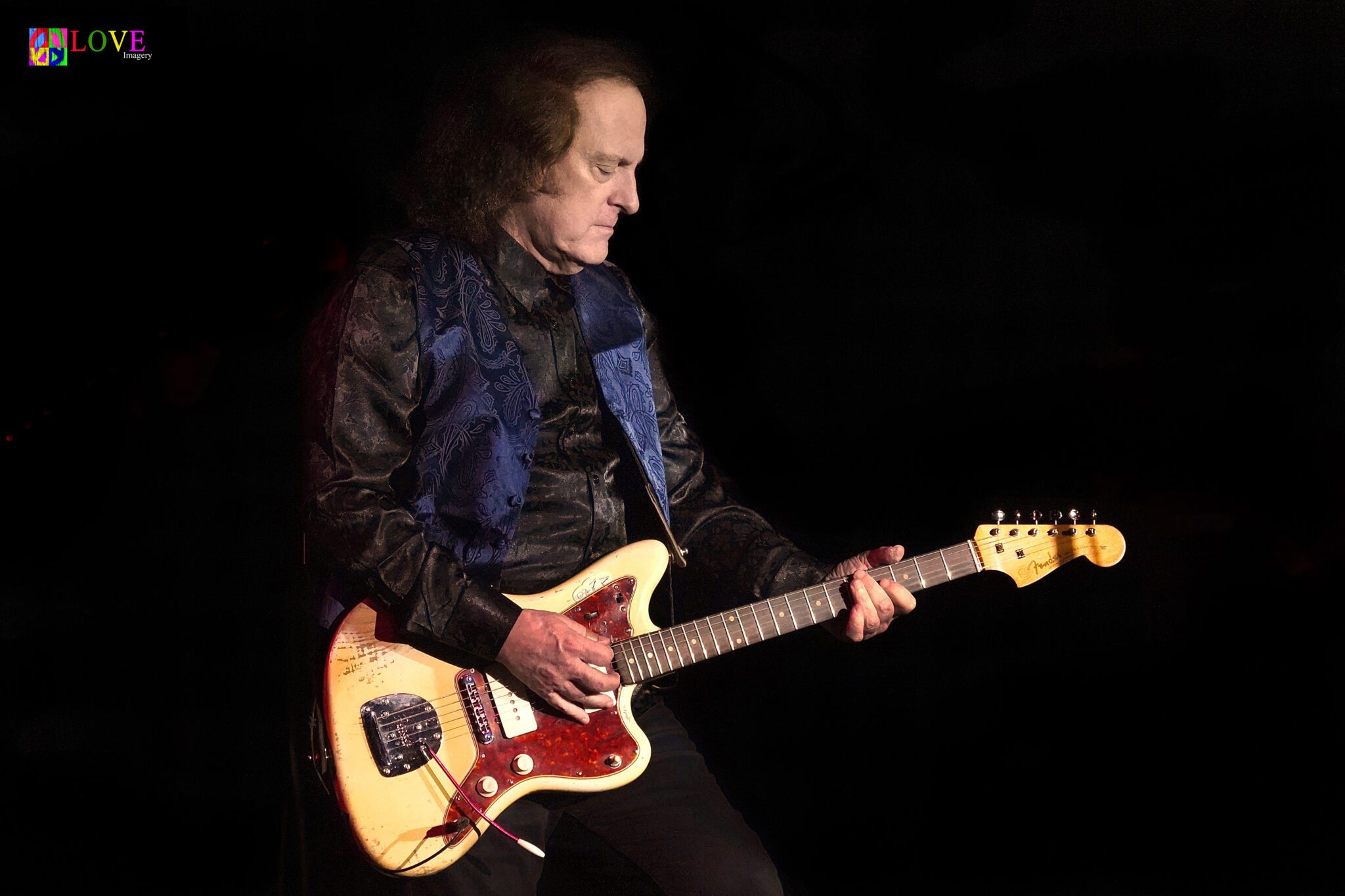
TOMMY JAMES
Contact: Carol Ross, Aura Entertainment Group
crd9138@aol.com
“Mony Mony,” “I Think We’re Alone Now,” “Crystal Blue Persuasion” and “Dragging the Line” are just the tips of the ice berg for one of the biggest hit machines in pop music history, Tommy James and The Shondells. Celebrating nearly 60 years in the music business, James and company have created a legacy of unparalleled entertainment that has permeated all facets of radio, TV and film.
From his humble beginnings as a budding teenage guitarist/vocalist in Niles, MI to becoming one of the biggest selling artists of all time, the diversity and expanse of his reach includes a compelling memoir Me, The Mob and the Music: One Helluva Ride with Tommy James & The Shondells (Simon & Schuster) and hosting his own Sirius XM radio show Getting Together every Sunday 5-8 pm EST on ’60s Gold, Channel 73.
Vocal Health: “I do a few warm ups. But, basically, what I do is I only work once a week, at the most. Especially, with a high energy show like ours, if I was to do two or three shows a week I would have no voice left at all. And I also stopped smoking and drinking about 40 years ago. That’s made a huge difference. I do a few warm ups, but no la, la, la’s like an opera singer. I just give a few good shout outs and I’m ready to go.”
Elements of a Hit Song: “Many of the elements that make a hit song are happy accidents. Basically you start with a song you really believe in. But there are so many things that transpire in the studio when you’re making a record that it’s incredible. The whole idea of the tremolo in ‘Crimson and Clover’ came out of me playing with an amp. I was gonna use that on the guitar. But, before we knew it, we were using it on everything, including the vocal at the end.
‘I think We’re Alone Now’ was the same way. The staccato guitar notes came about as we were making the record. We wanted to speed the record up a little bit so I was doing eighth notes on the guitar. We just left that part in and it became the signature part of the song. On ‘Dragging the Line,’ we did the track before we wrote the song. It was a loop of tape that we kept going throughout the whole record.”
Me, The Mob and the Music Film: “Things were shut down in Hollywood for about three years with COVID. And then there was the writers’ strike. But we’re back up and running now. And they’re in the casting phase right now. The film in production is based on the book which depicts our crazy relationship in the ‘60s with Roulette Records.
Unbeknownst to us, when we signed with Roulette we had no idea it was a front for the Genovese crime family in New York. But we’re finally moving forward and the movie is gonna be directed by Kathleen Marshall. It’s being produced by Barbara DeFina, who produced Goodfellas and Casino. And the screenplay is written by Matthew Stone. We’ve got a great team behind us and we’re looking at about 18 months before it comes out.”
Songwriting Discipline: “It’s evolved over time. As you get older you tend to write about subjects that parallel your station in life. I have never stopped writing. I’m glad to be able to do it because when you write singles it’s a snapshot of where you’re at as a human being.”
Best Advice You’ve Ever Gotten: “From a songwriting point of view Doc Pomus, who wrote a lot of ‘60s hits, and me were talking when I was first starting to write songs. He told me ‘don’t forget, we’re not writing songs, we’re writing records.’ Whoa! That hit me right between the eyes! I knew exactly what he meant. The record is not so much a song as it is a production. And there were certain rules with making records. They couldn’t be more than three minutes long and they had to have an intro so the DJ could talk over the song and introduce you. There was a blueprint for writing Top 40 singles.”
Being a Legacy Artist: “My perspective is kind of interesting. I look out in the audience and I see three generations of people. And it really blows my mind because they don’t know each other, but they all know the music. And I’m really glad to see that. It’s almost like a religious experience.”
